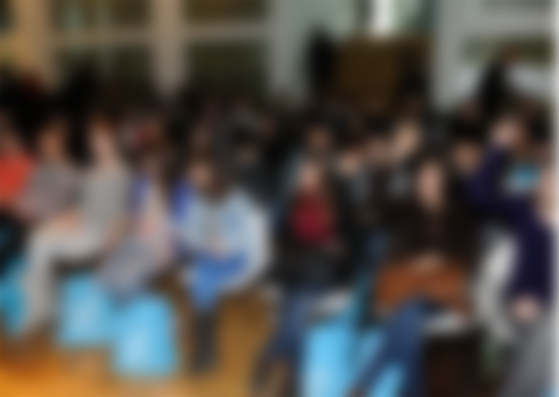
I have already written about the Peer Team for Combating Violence, Abuse and Neglect, which was established in the school where I work back in 2011. , of which I was the founder and first coordinator. The peer team noticed the danger of online violence very early on and started fighting it.

Following the example of the then current series Gossip girl, a Facebook page of the same name appeared in our city. They published gossips about young people which had extremely negative effects on them. I live in a small town where everyone knows each other so it was all really passionate and with potentially disastrous consequences for those young people.
Members of the Peer Team reacted immediately. They filed charges against John Doe with the police (we also educate the legal profession at the school), and the Gossip girl got "publicity" that she didn't want. In local newspapers, the entire middle side was devoted to its negative impact. The authors of the articles were students from all high schools who joined the initiative of our students. Some of the headlines were: Sick imagination can do anything, Gossip girl - harmless fun or an alarming problem, and our students sent her an open letter in the newspaper.
We were soon informed by the police that a court in California was in charge of Facebook-related cases. Then the members of the Peer Team came up with a new idea. to open a page on Facebook that will publish all the successes of our students in any field. The idea was to fight against lies and gossip with truth and real, good news. The idea worked for them. Their posts quickly became very popular, everyone talked about the beautiful things our students do, and - Gossip girl stopped publishing. About this event, the members of the Peer Team also made a short film called "Announcement, not gossip - a true story" with which they participated in the "Play Safe" competition and won second place.

Our work was noticed very quickly in the Ministry of Education. We were invited to be one of the schools that is included in the "School without Violence" program, and we gladly responded to the invitation. The Ministry of Education, in cooperation with UNICEF and Telenor, organized a student debate in Belgrade on February 5, 2013, on the occasion of Safer Internet Day, entitled: "Share a smile, leave a like for love, and hate hatred" 40 students from 5 primary schools and 5 secondary schools from all over the country, accompanied by their teachers. I also attended that debate together with the elected members of the Peer Team.

In a very interesting conversation, the students showed that they are aware of the dangers that exist on the Internet, but that they understand the real danger of all this only when they experience digital violence themselves. They also talked about the ease with which most young people post their data on social networks and that often the quantity of friends is more important than their quality. A survey on digital violence, conducted as part of the "Stop Digital Violence" project in November among primary and secondary school students, their teachers and parents, shows that in each class at least two students accept a live meeting with a person they only knew through the internet, sometimes not knowing it was an adult.
During the debate, three films about specific cases of digital violence were shown, after which the students compared the seen scenes with the experiences from their schools and suggested solutions on how to prevent and protect themselves from such situations. The conclusion of the participants in the debate, primarily students, is that, as in other types of violence, it is important to reduce the number of passive observers, because the more visible the violence, the easier it is to oppose it.
The debate was broadcast live via live stream, where 510 students and teachers from all over Serbia followed the discussion, mostly from their schools, and slightly more than 100 students used the opportunity to comment and ask questions.
Digital violence is certainly a huge problem, and it needs to be constantly fought. What I learned while working with my students is that we should not underestimate young people and that we should only offer ready-made solutions, but we should talk to them and ask them for their opinion. You may be surprised - they have wonderful, innovative ideas.




I completely understand your article.beceuos i am a teacher.